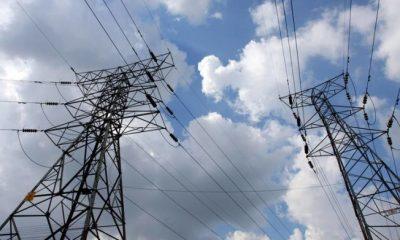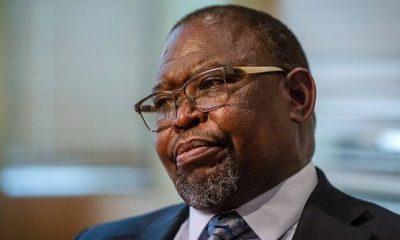News
Load Shedding Persists During BRICS Conference in Johannesburg

Minister of Electricity, Dr Kgosientsho Ramokgopa, has deferred the decision on whether the City of Johannesburg will be exempted from load shedding during the pivotal BRICS Summit scheduled for the upcoming week, leaving it in the hands of the system operator.
The BRICS Summit, anticipated to be the first in-person, three-day gathering of heads of state from BRICS nations, government ministers, and private business executives since the outbreak of Covid-19, is poised to convene in Johannesburg starting next Tuesday as reported by IOL.
Also Read: Empowering Gauteng Youth: Turning Wheels for Hope and Employment
However, against the backdrop of this international event, the nation finds itself grappling with power challenges. The power utility, Eskom, has been implementing daily power cuts, each lasting for two hours, as a precautionary measure to prevent the national grid from succumbing to the strain of long-standing inadequate energy generation capacity, further compounded by rising demand.
Traditionally, the government has sought to exempt the country from load shedding during special occasions, calling upon the Eskom system operator to facilitate this exemption. Given the impending BRICS Summit, such an exemption was expected, lest the embarrassment of leaving international dignitaries in the dark ensue.
Yet, in a recent development, Ramokgopa, speaking on the matter, asserted that load shedding should not be contingent upon events, indicating that rotational power cuts would persist as long as power generation failed to meet demand. Addressing the potential exemption of the City of Johannesburg from load shedding, he emphasised the city’s responsibility to contribute to safeguarding the national grid, even in the face of a high-profile summit.
Ramokgopa underscored the complexities of load-shedding exemptions, acknowledging that not all entities could be spared from the process, as doing so could compromise the integrity of grid protection, which hinges on the mechanism of load shedding. He outlined two possible scenarios to clarify the situation: either Eskom would declare a universal exemption from load shedding, eliminating the concern for the summit, or if the summit remained unimpeded by power cuts, it could be due to a mismatch between the summit schedule and Johannesburg’s load shedding schedule.
The minister emphasised that the system operator’s determination of load shedding intensity solely hinges on the interplay between electricity demand and available generation capacity, with every entity being called upon to contribute.
In a subsequent update, Ramokgopa detailed the advancements in the Energy Action Plan and the weekly generation outlook. He noted a gradual improvement in generation capacity and a decrease in demand, attributed in part to slightly warmer weather conditions. He emphasised the necessity of maintaining units and addressed the Energy Availability Factor, which averaged above 60%. However, he acknowledged an imbalance among power stations, with some shouldering a disproportionate share of the energy load while others lagged, impeding overall generation.
Notably, the Medupi power station stood out as a top performer with an 88% generation capacity in July, followed by Lethabo at 86%, Matimba at 72%, Camden at 66%, Duvha at 62%, and Majuba at 60%. On the other hand, Tutuka, with a mere 13% generation capacity, remained the least-performing power station, trailed by Kusile at 19% and Grootvlei and Hendrina at 27% each.
To address the disparities, Ramokgopa detailed ongoing interventions to enhance the underperforming power stations’ capabilities. He highlighted the meticulous approach taken by Eskom’s head of generation, Bheki Nxumalo, in diagnosing specific units’ underperformance and identifying technical areas requiring attention. Nxumalo’s expertise is crucial in addressing these challenges and working towards solutions.
Amid these developments, Eskom implemented Stage 3 load shedding, a response to unplanned breakdowns accounting for 16,547MW of lost generating capacity. In addition, 4,507MW of capacity remained out of service due to planned maintenance. Eskom attributed the ongoing capacity constraints to delays in returning a generating unit at Kendal and two units at Tutuka power stations to operational service.
As the country navigates these challenges, the delicate balance between ensuring power supply and hosting international events necessitates nuanced decision-making while ongoing efforts strive to bolster the stability and performance of the nation’s power generation infrastructure.
Also Read:
Follow us on Google News
Photo: Facebook / @City of Joburg






















